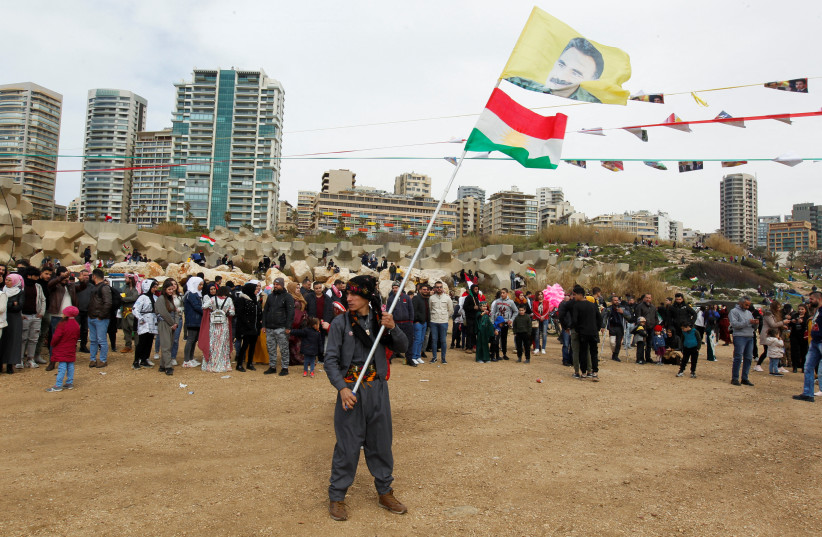Iran's Revolutionary Guards Corps said on Wednesday they fired missiles and drones at militant targets in the Kurdish region of neighboring northern Iraq, where authorities said 13 people were killed.
On Thursday, four rockets were fired from eastern Baghdad and landed around the Iraqi capital's Green Zone, home to government buildings and foreign missions.
"The enemy's attempt to create sedition in the country is due to the sense of danger from this authority and the progress of the system."
Iranian President Ebrahim Raisi
According to Iranian state news outlets Tasnim news and PressTV, a total of 73 ballistic missiles were fired on Iraq since Iran's most recent outbreak of protests. Persian media also mentioned the use of suicide drones.
Iran targets the Kurds
The strikes were reported after Iranian authorities accused armed Iranian Kurdish dissidents of involvement in unrest now shaking Iran, especially in the northwest where most of the country's population of over 10 million Kurds live.

The United States has made efforts to aid Iraq, acknowledging that the Iraqi state is not directly responsible for Iran's current situation. A recent statement by National Security Advisor Jake Sullivan stated explicitly that "Iran cannot deflect blame from its internal problems and the legitimate grievances of its population with attacks across its borders."
Claims from the state
Persian media outlet PressTV, a state-run entity, claimed in an article on Wednesday that the attacks "came after the illegal entry of armed teams linked with the Kurdish terrorist groups into the Iranian border cities in recent days." The article went on to assert that "these thugs and rioters have exploited protests over the death of Mahsa Amini, engaging in acts of vandalism, bloodshed, and even desecration of Islamic sanctities in several Iranian cities."
Iran's President Ebrahim Raisi also spoke on Wednesday morning at his cabinet meeting in regard to his country's current tensions, saying that "the enemy's attempt to create sedition in the country is due to the sense of danger from this authority and the progress of the system."
According to the Official Website of the President of the Islamic Republic of Iran, Raisi emphasized the idea that "the proud authority of the Islamic Republic must be displayed with a detailed explanation and the creation of lasting cultural works so that even the enemies realize it more than in the past and acknowledge this greatness, and also let the new generation be aware of the dimensions of this authority and be proud of it."
